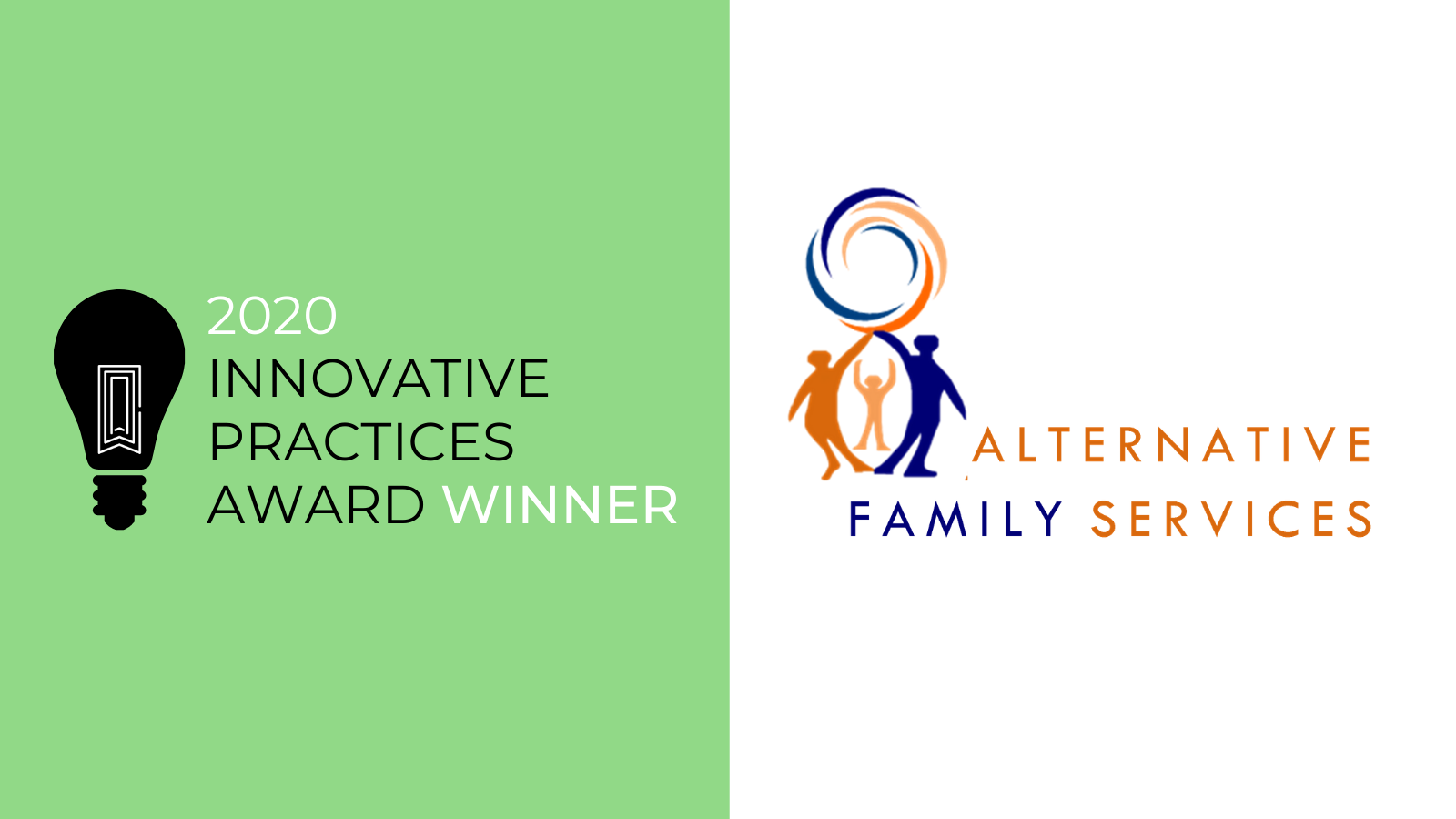Community
30 Days to Family®: Hear from the 2018 Innovative Practices Award Winner
Too often great ideas are kept in-house without recognizing their potential to create change beyond the communities where they are born. COA’s Innovative Practices Award (IPA) identifies, documents, and celebrates examples of successful approaches to management and service delivery practices adopted by our accredited organizations.
In 2018, a committee made up of COA volunteers and staff selected 6 finalists from over 45 Innovative Practices Award submissions to move forward with a full case study. The St. Louis-based Foster & Adoptive Care Coalition’s 30 Days to Family® came out the winner. Read on to find out how 30 Days to Family® is leading the charge to create stability for kids in the chaotic world of foster care.
Seven siblings entered foster care when they were discovered in deplorable conditions with no food or water. With no known relatives in the area, they were split up between four separate, distant foster homes. Eight days after our team stepped in, all children were placed together, and, one year later, are still in the same home.
Maliek’s father’s beating sent him to the hospital. Lost to addiction, his mother was nowhere to be found. His grandmother, a refugee from the Rwandan genocide, wanted custody, but because she spoke limited English, the licensing team refused to accommodate her. His aunt also wanted custody but lived out of state. The Coalition stepped in to provide translation services and one-on-one training with grandma so she could become a licensed relative provider for Maliek while his aunt went through the lengthy ICPC process. One year later, Maliek was happily in the guardianship of his aunt, his grandmother living in to assist with childcare.
* * *
By the start of the opioid epidemic in 2011, the St. Louis-based Foster & Adoptive Care Coalition had become family-finding experts. We were the first agency in the country to utilize full-time private investigators, and our work was featured in The New York Times and TIME Magazine. But like everyone else, we were doing family finding for children who had already spent years in foster care.
Why were we waiting? We know that long-term foster care is bad for kids. We know that extended family experience deep grief because they’ve lost a child to the system for years. And we know that relatives often respond to requests for help by telling us, “I said I could help years ago, but then nothing happened.”
The Fostering Connections Act of 2008 mandated that all family members be alerted within 30 days of a child entering foster care, but we know that doesn’t happen. Lack of time, tools, and training mean a caseworker identifies an average of only seven relatives. Though a safe, appropriate family member could have been found, a nonrelative foster parent is called and, as a result, children suffer in isolation from their culture of origin, school, neighborhood, and church.
To make matters worse, Missouri does not have enough foster homes to deal with a steep increase in the number of children entering care due to the opioid epidemic. In the last 10 years, Missouri has seen a 42% increase in new entries, with more than 20,300 children spending time in foster care in 2018.
Realizing an opportunity to do better work up front, we created 30 Days to Family®.
30 Days to Family® is an intensive, short-term intervention that places children in the homes of safe and nurturing relatives within 30 days of entering foster care. It works because 30 Days to Family® Specialists are required to find an average of 150 relatives for each child or sibling group. In the last eight years, we’ve learned many lessons about how to find and engage family. Here are the top three:
Work fast
Every night in foster care for a child is a night in crisis. That’s why we initiate 30 Days to Family® the moment a child enters foster care. A member of our team attends the child’s first protective custody hearing to create a sense of urgency around the case. The more time a child spends in care, the more likely it is that relatives will fall away or disengage. Immediacy is key.
And that attitude of immediacy permeates every aspect of every case. If a relative expresses interest in providing placement, we drop everything and assess for safety on the spot. Relative foster parents shake up their entire lives when they agree to care for our kids; the least we can do is match their enthusiasm and flexibility.
“We operate from a mindset of ‘don’t put off tomorrow what can be completed today.’”
When it comes to 30 Days to Family® cases, regular business hours do not apply. We operate from a mindset of “don’t put off tomorrow what can be completed today.” The early tasks in a case are critical for setting the tempo and tone of everything that comes after. Our team never wants to let an opportunity slip through their fingers to find a safe, appropriate relative for a child and get the whole professional team on the same page.
But we don’t slow down once a relative steps forward. Our Specialists bring the same sense of urgency to support as to recruitment. We will not allow a disruption because daycare isn’t in place and the caregiver has to choose between a job and a child. This person became a parent days ago – they have a million things to deal with and calling daycares for openings or doctors for Medicaid eligibility distracts them from meeting the needs of the child in their care.
Engage everyone
When it comes to our kids, everyone has something to contribute. While they may not be able to take placement, a retired uncle may be able to transport the kids to appointments, grandma could watch them after school, or a cousin could help cook dinner on her nights off.
You simply never know when you will find a relative with something amazing to give. To that end, we will contact every living adult relative despite their background, criminal history, abuse and neglect history, social situation, or living conditions. Even if they aren’t appropriate for placement, they may know of a long-lost relative who will prove invaluable in supporting the family. Everyone has a piece of the puzzle.
Often, our team will hear that an aunt or grandparent doesn’t want to be involved – they had enough of mom and dad years ago. Or maybe they don’t trust the child welfare system. A key to our success has been to never take that at face value. We always reach out to hear their story, and often find that if we listen actively and with empathy, they will become an active part of the child’s life.
Another thing that sets 30 Days to Family® apart is its commitment to involving paternal relatives. We do not wait for paternity to be established to reach out, as we’ve found that cousins or grandparents will often step up if they know the children. Biological relation is not a deciding factor for many of our caregivers. Many will ask for placement even after a conclusive paternity test shows they have no relation to the child.
However, we do always attempt to establish paternity. We know kids do better when they’re connected to family. To that end, we’ll do our best to give them as much information as possible. We’ve even begun conducting our own paternity tests to speed things up.
Support always
“Focusing on natural supports strengthens the caregiver’s existing social network, offers more flexibility, and gives kids more relative connection.”
Just as important as finding a relative placement is putting an end to what we call “relative dumping”– you know, when grandma is asked to take in her four grandkids with no support. Say grandma has a good job at a factory, but inflexible shifts. Suddenly, all the kids in her care need physicals, dentist appointments, psychological exams, new school enrollment, court dates, and team meetings – all within a month. Instead, our team utilizes our proprietary Roadmap to Family, which guarantees all formal and informal supports are in place to keep grandma focused on caring for her grandkids.
The Roadmap to Family is a thorough, culturally competent plan created in concert with the family. Everyone has buy-in and makes a commitment. Our team focuses on “natural” supports rather than “prescribed” supports: We’ll find a cousin to take the kids to their doctor’s appointments rather than rely on public transportation, or an aunt who is a math teacher instead of hiring a tutor to help with homework. Focusing on natural supports strengthens the caregiver’s existing social network, offers more flexibility, and gives kids more relative connection.
Another key to 30 Days to Family® is the inclusion of backup placements, often more than one. Should a placement disrupt, having multiple relatives lined up to step in ensures that the kids stay with family and are not forced to go to a stranger’s home. It eases the burden on overworked caseworkers, who otherwise might place the child in residential care due to a shortage of available nonrelative foster homes. Our team fully vets each backup as though they were taking immediate placement, so there is as little friction as possible in the event a disruption happens.
Finally, we conduct intentional, direct follow-up with caregivers at two weeks and 30 days after the end of services. We want to know if and how they’re utilizing the Roadmap to Family, if there’s any support they lack, any barriers they’re facing, or if they feel there’s any risk of the child disrupting. We want to make sure they feel supported and set up for success. If the caregiver needs anything, our team jumps back in – whatever needs to happen to minimize the disruption in the child’s life.
What’s in it for our kids?
In 2015, we secured funding for a multi-year, independent study of the 30 Days to Family®. Dr. Anne Atkinson with PolicyWorks, Ltd., a think tank based in Virginia, matched children served by 30 Days to Family® with comparable children who received services that were business as usual. The results were stunning. Children served by 30 Days to Family® exited foster care 91.4 days earlier on average. If the child had an identified disability, s/he exited foster care 257.8 days earlier. Not surprisingly, most children achieved permanency through reunification, adoption by their relative, or guardianship, reducing the need for nonrelative adoptive homes. Also, children served were half as likely to spend time in an institution (26% vs. 14%). Excitingly, children served were 81% less likely to experience placement disruptions.
By increasing permanency and stability and reducing the toxic overuse of residential treatment, 30 Days to Family® has created resilient placements which created a wide range of benefits for children, such as:
- More positive relationships with mom (61% served vs. 30% not served)
- More connection to paternal relatives (79% vs. 29%)
- Greater involvement in extra-curricular activity (60% vs. 45%)
- Higher employment for working-age teens (60% vs. 21%)
Additionally, Dr. Atkinson’s study was the first economic child welfare study of its kind in the United States. It demonstrated that every child served by 30 Days to Family® saves taxpayers an average of $10,217.61. Average savings increased to $21,687.26 for children nine and older. These numbers do not include intangible benefits such as reducing foster parent recruitment costs and easing caseworker workload. Neither does it include second-and-third-tier benefits, such as reduced Medicare costs and savings from lower percentages of children spending time in institutions. Our 30 Days to Family® Specialists can serve a minimum of 30 children per year, resulting in at least $300,000 in savings.
* * *
Family search and engagement takes work, but the rewards are worth the up-front investment of your time and resources. 30 Days to Family® represents the way forward for an overburdened child welfare system. By deepening family involvement and relationships, we build resilience among our most vulnerable children and increase buy-in in our community. By creating stability in their chaotic lives, we give our kids a chance at a genuine childhood, in which they can develop meaningful, long-term relationships, succeed in school, and pursue their passions. By being good stewards of public resources, we model responsibility and accountability. By rigorously evaluating and means-testing our own work, we set a precedent that children in foster care deserve the best we have to offer.
If your organization is interested in the 30 Days to Family® model, please contact the Foster & Adoptive Care Coalition’s Director of Program Replication, Melanie Moredock, at melaniemoredock @ foster-adopt.org.
The views, information and opinions expressed herein are those of the author; they do not necessarily reflect those of the Council on Accreditation (COA). COA invites guest authors to contribute to the COA blog due to COA’s confidence in their knowledge on the subject matter and their expertise in their chosen field.
Melanie Moredock
Melanie began with the Foster & Adoptive Care Coalition in 2011. Melanie’s previous child welfare experience includes residential treatment, specialized case management, and foster/kinship parent training and licensing. Melanie obtained her Juris Doctorate from Saint Louis University School of Law and has been a member of the Missouri Bar since 2007. Melanie’s passion is engaging and empowering family members, as well as working closely with the professional team members to ensure the laws regarding relative/kin placement are followed. Melanie enjoys sharing her knowledge of the program with others through providing individualized training and consultation to interested agencies and supervision of the 30 Days to Family® replication sites.



